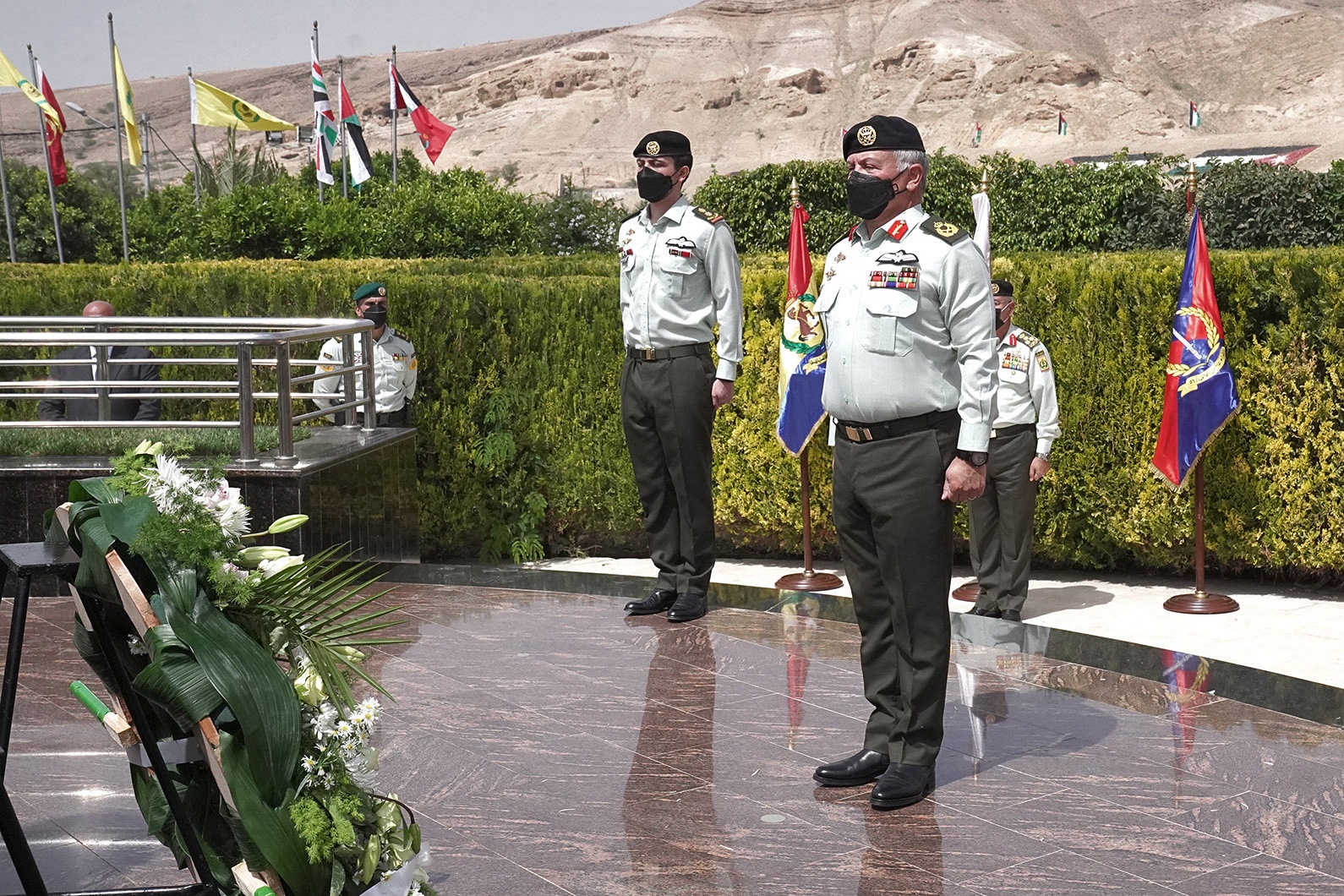 AL-KARAMAH, Jordan: Jordanian King Abdullah II, accompanied by his son Crown Prince Hussein, stands before laying a wreath during his visit to the war memorial at the site of Al-Karamah in western Jordan, commemorating the 53rd anniversary of the battle between Jordan and Israel. – AFP
AL-KARAMAH, Jordan: Jordanian King Abdullah II, accompanied by his son Crown Prince Hussein, stands before laying a wreath during his visit to the war memorial at the site of Al-Karamah in western Jordan, commemorating the 53rd anniversary of the battle between Jordan and Israel. – AFPAMMAN: Jordan on Sunday made public a defense agreement with the United States that allows free entry of US forces, aircraft and vehicles onto the kingdom's territory. Foreign Minister Ayman Safadi told parliament that the defense accord was "the fruit of long negotiations". The agreement was signed in January and the government approved it last month, but in an exceptional move it bypassed parliament. The royal decree was published in the official journal this week.
The terms of the agreement, published on Jordanian news site Ammon, stipulate that "US forces may possess weapons and circulate with them on Jordanian territory while exercising their duties". It also states that US forces may transport and stock equipment and that personnel, their aircraft and ships are authorized to "freely enter and exit Jordanian territory".
Islamist lawmaker Saleh Al-Armuti decried the lack of parliamentary oversight and called on the government to cancel the accord, claiming it "violates the constitution and affects Jordan's sovereignty". But Safadi pushed back, saying the agreement "in no way affects Jordan's sovereignty, and everything it contains is subject to Jordanian law and is compatible with international law".
"The agreement does not authorize American forces to carry out combat actions within the kingdom," he told lawmakers. "The agreement aims to frame defense cooperation and reinforce US support for defense programs and the kingdom's security and stability through military training and equipment," Safadi said.
The US State Department considers the Hashemite kingdom "a vital US partner on a wide range of regional security issues". Jordan is a key recipient of American financial aid - including $425 million in military assistance annually, according to Safadi. - AFP










